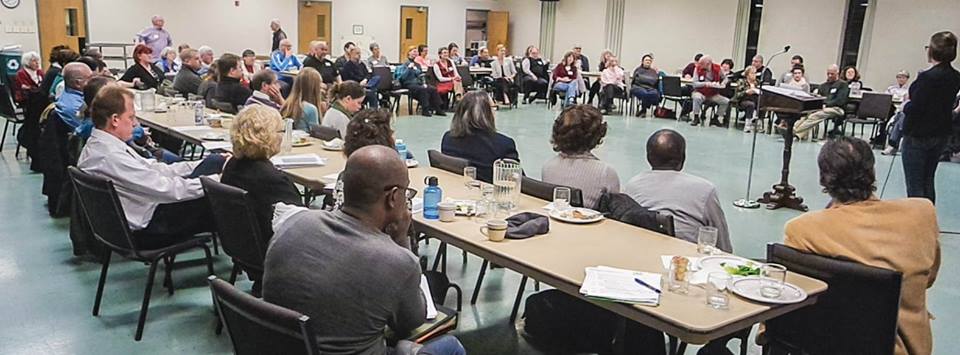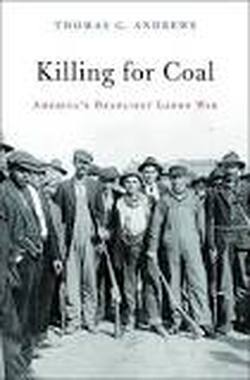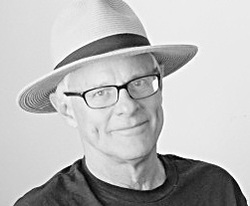
IAF organizations investigate power relationships in order to fight for recognition and strategic advantage.
Laying the foundation for a broad based, citizens organization by examining power relationships dating back to the labor struggles of the early 20th century is counter intuitive. But that’s exactly the work begun on Dec 2, 2014 at First Plymouth Congregational Church, Denver, CO with over 80 leaders from congregations, schools, unions, and non profits present. Thomas Andrews, author of the brilliant history Killing for Coal, served as guest speaker helping identify the power political consequences of a state economy anchored in extractive industries, especially coal, and co-related commercial ventures, especially railroads, power generation and steel production. This same disposition to unearth how power relationships impact everyday life figures prominently in all IAF organizing drives. Careful power analysis is a craft learned over time, refined through action and relied upon to accurately target the levers of power. The exemplars cited in IAF Strengths Part 3 are grounded in the performance of rigorous power analyses. In the Colorado instance, power patterns of business as usual, largely inherited from the industrial past, tend to overwhelm current change strategies. Colorado IAF seeks to build sufficient emergent new power to disorganize existing relationships on the way to reorganizing for transformative action in areas of vital concern to individuals, families and the institutions that serve them. 
In the spring of 1914, members of the Colorado National Guard machine-gunned and set fire to tents in Ludlow, Colorado, where striking miners were living with their families. Five miners, two miners’ wives, and twelve children died, most of them by suffocation while hiding in a cellar under... Read review in the New Yorker here.
0 Comments
Leave a Reply. |
Frank C. Pierson, Jr.Frank Pierson retired after forty years of work with the Industrial Areas Foundation (IAF) as a professional organizer. He began his career in 1971 in Chicago, moved to Queens, New York City and migrated west to work in Arizona, New Mexico, Nevada and Colorado. He resides with his wife, Mary Ellen Kazda, in Oracle, Arizona. He may be reached at [email protected] Archives
June 2018
|


 RSS Feed
RSS Feed
